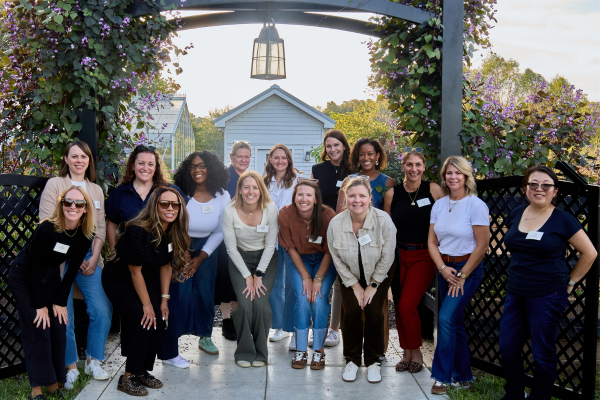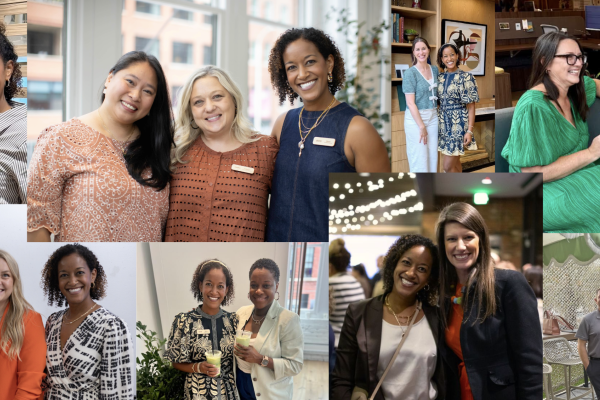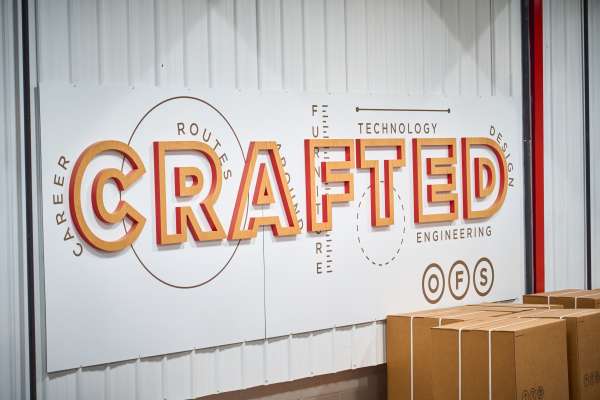Mike and Jess needed a way to slow down the busy pace of their daily lives—to escape the weekly grind.
Mike and Jess McFarlane are the sort of couple you could easily picture on a tandem bicycle. In both business and life, their personalities and skill sets complement one another, and each is the other’s greatest fan.
 Mike, as Jess describes him, is not one to sit around... ever. An endless source of energy and ideas, Mike is constantly creating something new—motivated always by bettering himself and those around him. Jess, on the other hand, is a down-to-earth thinker with discerning judgment. With a magnetic smile and a great sense of foresight, Jess helps filter and execute Mike’s ideas. Together, the pair is a problem-solving powerhouse, whether raising their three children or building their business, a furniture manufacturer’s representative named VPI.
Mike, as Jess describes him, is not one to sit around... ever. An endless source of energy and ideas, Mike is constantly creating something new—motivated always by bettering himself and those around him. Jess, on the other hand, is a down-to-earth thinker with discerning judgment. With a magnetic smile and a great sense of foresight, Jess helps filter and execute Mike’s ideas. Together, the pair is a problem-solving powerhouse, whether raising their three children or building their business, a furniture manufacturer’s representative named VPI.
But as their company and kids grew, Mike and Jess faced a new set of challenges. For their family, it became harder and harder to find quality time together between business ventures and extracurricular activities. They needed a way to slow down the busy pace of their daily lives—to escape the weekly grind. First, they considered a cabin out-of-town, but the distance from the city and property upkeep meant it might actually cost them more time than it gave back.
At the same time, their business faced a different problem. Mike and Jess felt like there was never a good place to meet with clients and colleagues, and hoped to establish a new showroom and meeting space for the company. Mike, as an experienced commercial property investor, noticed real estate prices rising in Seattle and knew that they would need to move quickly to find the right space.
In thinking over these problems, Mike was reminded of an experience in Norway a decade ago that forever changed the way he thought about place. Walking the streets of Oslo one evening, he noticed there was no visible activity in the apartments above the streets—no lights on, no silhouettes, nobody home. When he asked his Norwegian colleague where everyone was, the colleague replied, “They are all out here, living.”
 Even after Mike returned home, he couldn’t shake the idea that people in Oslo spent their time out in their community, interacting with friends and family, rather than hunkering down in their homes. He and Jess began seriously discussing hospitality and its connection to nature in Norweigian culture. Together, they eventually decided to move from their beautiful home in the suburbs to a fixer upper in a vibrant, walkable neighborhood close to downtown.
Even after Mike returned home, he couldn’t shake the idea that people in Oslo spent their time out in their community, interacting with friends and family, rather than hunkering down in their homes. He and Jess began seriously discussing hospitality and its connection to nature in Norweigian culture. Together, they eventually decided to move from their beautiful home in the suburbs to a fixer upper in a vibrant, walkable neighborhood close to downtown.
Surrounded by other community-minded young families, the McFarlanes found their lives to be richer and fuller than they were in their previous home. They had stumbled upon a beautiful and persistent truth: changing your place can change your life.
With this lesson in mind, Mike dreamed of a place where his family could connect with one another without feeling distracted by the demands of daily life. At the same time, he dreamed of a restorative place where his colleagues and clients could meet away from the stress of the office and really connect with one another.
But solving both problems would take a creative leap. Inspired by the book “Blue Mind” by Wallace J. Nichols, Mike began to think about a different kind of space for the showroom, one that tapped into the powerful role that water can play in our lives. In describing the physical, mental, and social benefits of proximity to water, Nichols explains: “Water quiets all the noise, all the distractions, and connects you to your own thoughts.”
Mike scoured the Pacific Northwest for rundown barges that could be developed, eventually discovering a beautifully remodeled houseboat on Lake Union. The houseboat was just ten minutes by foot from their house, but it had one of the best views of the city on the entire lake. That’s when it clicked for him: the place his family needed to reconnect and the place his colleagues needed to meet and restore could be one and the same.
Knowing Mike’s eye for properties in disrepair, Jess reacted to the idea with some initial skepticism. Mike assured her there was nothing wrong with it and upon seeing the space in person, Jess found it was truly as nice as they hoped, sparking both their imaginations.
Although houseboats are historically part of Seattle culture, this one has become a unique haven for an intentional lifestyle.
 They were taken by the feeling of peace and tranquility that the space provided. With the sun gleaming on the water, the panorama of the city as a backdrop, and the gentle waves rocking the boat up and down, they realized this was a place where they could truly slow down.
They were taken by the feeling of peace and tranquility that the space provided. With the sun gleaming on the water, the panorama of the city as a backdrop, and the gentle waves rocking the boat up and down, they realized this was a place where they could truly slow down.
Mike tried to play coy with the seller about how he felt (he’s a successful real estate investor for a reason) but Jess, unable to hide her excitement, took the the negotiation approach of “we absolutely love it.” Her “interesting” tactics notwithstanding, they got the sale.
Soon after, the pair began to design the interior of the space. They chose products that could sell well, but also fit within a restful, homeful environment. This included a small table for hosting meetings and an overstuffed loveseat for unwinding. They put modern stools at the kitchen island to inspire the sort of interactions you might find at a café or a bar. Each choice served as an intentional vision for a place that would create memorable experiences.
 Mike and Jess found that the space had an immediate impact, both for the company and their family. Professionally, colleagues, clients and competitors alike are disarmed by the calm, inspiring setting. Mike and Jess regularly host cocktail parties for their colleagues and invite industry partners from all over the city to connect with one another. Freely offering its use to their teammates with no strings attached, their business has benefitted from fresh creative energy and a truly unique environment to meet in.
Mike and Jess found that the space had an immediate impact, both for the company and their family. Professionally, colleagues, clients and competitors alike are disarmed by the calm, inspiring setting. Mike and Jess regularly host cocktail parties for their colleagues and invite industry partners from all over the city to connect with one another. Freely offering its use to their teammates with no strings attached, their business has benefitted from fresh creative energy and a truly unique environment to meet in.
While just a short walk from their home, the houseboat feels like another world. For their family, the space has become an invaluable respite for parents and kids alike. At home there are emails, football practice, homework—the list goes on. At the houseboat, there’s peace, balance, and relaxation. While at home, the family spreads out into separate rooms. On the water, Mike, Jess, and their kids are excited to stay in one room together, talking and playing games.
Another beautiful thing about finding the right place is that there are unique layers of value that can only unfold with time. For Mike and Jess, this often meant spontaneous one-on-one time with each of their kids, like Mike sharing a lunch break with his daughter. Simple moments like this can be highlights of our lives, but can also become increasingly rare if we don’t create a place for them.
Mike and Jess’s story reminds us that place can be the catalyst for living fuller lives. For the McFarlanes, this new place was much less a physical structure, and much more a different way of thinking about the way they lived. Their example shows how place carries the power to inspire new ideas about who we are, who we could be, and how we can contribute meaningfully to the world around us. For Mike, Jess, and their family, the houseboat feels like another world.













